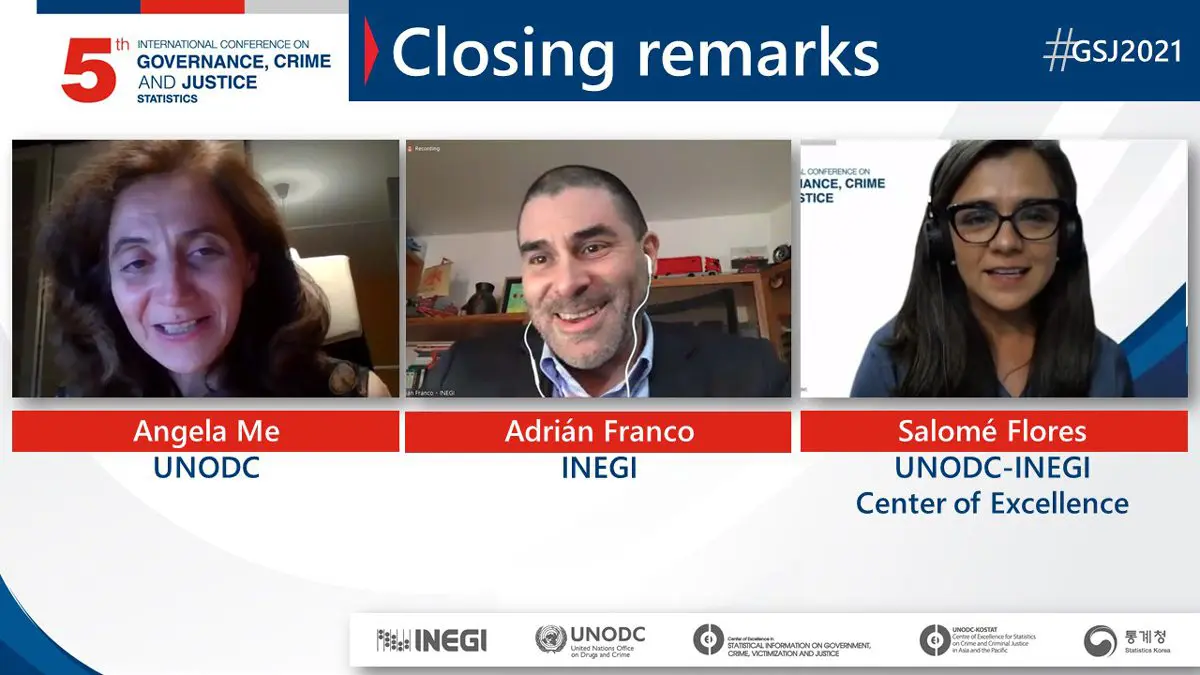The 5th International Conference on Governance, Security and Justice Statistics: Global Challenges and Experiences
Mexico City (Mexico), 18 June 2021 — The 5th International Conference on Governance, Crime and Justice Statistics (GSJ2021) from 14-17 June provided a space to promote dialogue among global entities engaged in the production of statistical information on crime and criminal justice — and their users. Experts discussed the challenges, gaps and quality of existing data at a global level, as well as the importance of its collection, disaggregation and use for decision-making.
The United Nations Office on Drugs and Crime (UNODC) and the National Institute of Statistics and Geography (INEGI) of Mexico joined forces through the Center of Excellence for Statistical Information on Government, Crime, Victimization and Justice (CoE) in order to host this event. The Korean Statistical Office (KOSTAT) and the Centre of Excellence for Statistics on Crime and Criminal Justice in Asia and the Pacific, provided invaluable support.
The world is undergoing an increasing number of security and crime threats, and the COVID-19 pandemic has posed its share of new challenges. Rising to these challenges requires reliable data and institutions, because research has shown that when countries’ resources to produce and access them are limited, this only serves to exacerbate existing problems.
Meanwhile, new solutions – such as casting the net for data more widely as to extend over the private sector are increasingly helping policymakers create safer and more inclusive societies.
Assessing crime and safety data implies getting a glimpse into victims and perpetrators’ daily lives; by reading biometric data, video surveillance, as well as performing analyses through statistical and geographic software. Advances in technology and the ability to take a closer look into the bigger picture, both significantly support access to justice and crime prevention.
However, technology at the same time has become a new field for crime. Today, the sphere is fraught with fraud, identity theft and a myriad of criminal threats. Due to the borderless nature of cybercrime, the incidences of these crimes increase proportionately with the growing number of illicit markets found on the darknet.







